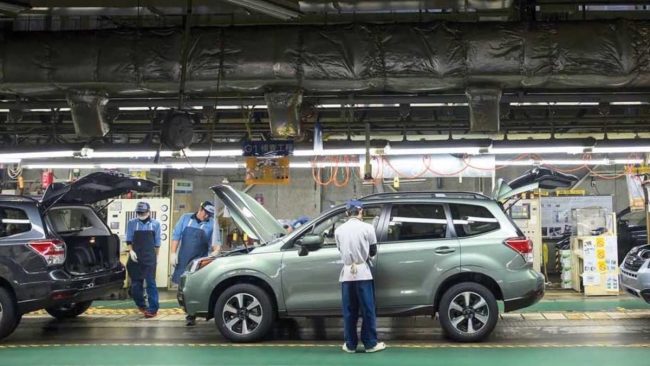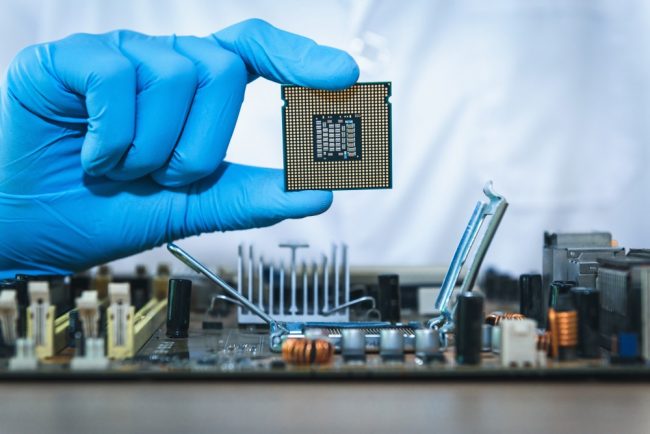
Subaru To Shut Factory In Japan Due To Chip Shortage
Semiconductors help power everything from your phone to your car. Car manufacturers including Subaru Japan around the world are making less car due to the global microchip shotages
Subaru Japan has been forced to shut down its production due to the continued global semiconductor shortage. The all wheel drive specialist manufacturer has joined the ever growing list of car manufacturers to stop production because of chip supply issues. Subaru will be idling two of its plants in Gunma from the 16th of July until further notice.

Located northwest of Tokyo, both these plants are the Japanese automaker’s main base of operations, and is responsible for producing nearly all of its current line-up of all wheel drive vehicles and also sports cars.
To that end therefore, dealers in North America have been warned by the automaker that supply of the Forester, Crosstrek, BRZ and WRX making its way over there will be limited in the foreseeable future. A problem further exacerbated by the fact that Subaru’s U.S. inventory was down to a mere nine days of supply at the end of May.
Fortunately for prospective Subaru buyers over here in Malaysia however, supply of its popular XV and Forester locally should not be affected, as both these models are currently assembled in Segambut and Thailand respectively. There are even some rather good deals on offer at the moment too, but there is the slight catch that no physical showrooms are currently open due to the ongoing nationwide lockdown.

Getting back onto the more serious topic of the semiconductor shortage meanwhile, this crisis has actually been affecting the auto industry for quite a while now. Despite car sales picking up across the board from the pandemic times of last year, many an automaker however simply can’t satisfy this increased demand experienced currently due to the shortage of microchips.
A confluence of factors that includes factory shutdowns and an explosion in demand for electronics in recent time have attributed to this severe shortfall in chips around the world. Though the fact that cars are getting increasingly technologically advanced , and hence requiring significantly more chips are partly to blame here too.
Now at this point in time, there is no definitive end date to this latest in the long line of catastrophes to rock the auto industry. Various automakers and governments are pulling strings and doing deals to keep their factories running or get it back online as soon as possible, but it would perhaps be a none too conservative guess that stories such as this one here with Subaru could possibly still be a common sight on the news for at least a year to come.
The Tan Chong Subaru Automotive Thailand (TCSAT) plant is located in the Ladkrabung Industrial Estate, which is in the outskirts of Bangkok City and is now the first Subaru plant to have been constructed outside of Japan. At full capacity, the plant is able to produce up to 100,000 units and accommodate up to four models.
The fifth-generation Forester sport utility vehicle was the first model to roll off the assembly line in Aug 2018 and it will be distributed in Cambodia, Malaysia, Thailand and Vietnam.
A team of Japanese staff have been employed at TCSAT to ensure production standards and processes meet the same stringent levels as in Japan. Also, high-performance robotics are used at several stages of the assembly process to ensure quality and defects are kept at bay.At the painting line, the pre-treatment, electrical deposits, primer and top coat are applied automatically.
The key welding points of the car body and the sealer application for glass components are also automated to achieve total consistency.
All this is part of the technology and skills knowledge transfer which Subaru Corporation has committed to. Quality control and correction processes take place during and throughout the assembly process and is complemented by regular production audits by Subaru Corporation.
Tan Chong International, the company’s Segambut plant will be ready in time to handle the production of next-generation Subaru models that ride on Fuji Heavy Industries’ (FHI) new Subaru Global Platform. This was revealed during an interview session at the ongoing Bangkok Motor Show.

